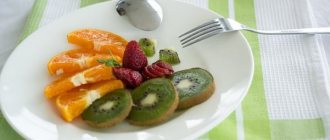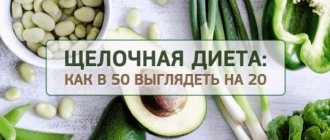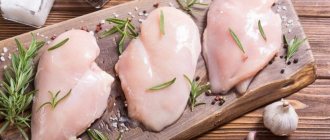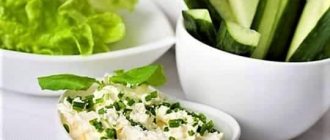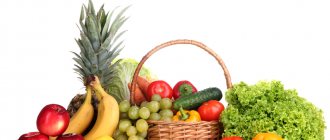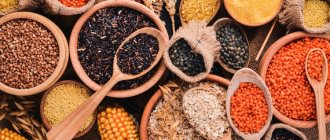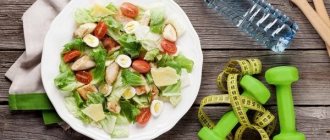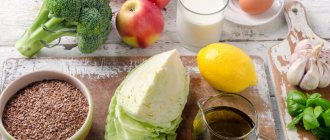A vegetarian diet has become increasingly popular lately. For some reason, it is believed that switching to vegetarianism can relieve excess weight and many health problems. Perhaps this is how stereotypes have developed: if you don’t eat fatty foods, you lose weight; if you exclude meat from your diet, you live longer. Undoubtedly, meat is rich in cholesterol and saturated fats, the excessive consumption of which can harm the body. But the fact is that vegetarianism is not a diet, it is a way of life that entails avoiding food of animal origin. And in order to lose weight, giving up meat alone will not be enough, because people who do not eat it can easily afford sweets, chips, various sauces, and other high-calorie foods. That is why a special diet has been developed that will help you get rid of extra pounds, while observing the principles of vegetarianism. Reviews about this diet are very contradictory, because it has both supporters and opponents who claim that a complete refusal of protein foods will cause irreparable harm to the body. But those who practice vegetarianism as a way of life completely disagree with them.
Varieties and benefits of vegetarianism
Content:
- Varieties and benefits of vegetarianism
- Basic principles and types of vegetarian diet
- Sample menu for a week of vegetarian diet
- Sample menu for a month of vegetarian diet
- Sports vegetarian diet
- Harm and contraindications of a vegetarian diet
- Advantages and disadvantages of a vegetarian diet
- conclusions
Many people think that the vegetarian diet was invented specifically for vegetarians, but this is not entirely true. The fact is that there are several varieties of vegetarianism that prohibit the consumption of one or another food depending on one’s beliefs. For example, vegetarians do not eat exclusively meat, many for humanitarian and ideological reasons. But their diet still includes milk, cottage cheese, eggs and other so-called kill-free products. Nowadays they are also called lacto-vegetarians or lacto-ovo-vegetarians. A stricter veganism excludes absolutely all products of animal origin, including slaughter-free ones. There is also a raw food diet, which allows you to eat raw foods that have not undergone heat treatment, since it is believed that temperatures above 46 degrees are detrimental to enzymes - enzymes that help speed up metabolism. There is also fruitarianism, whose followers eat exclusively fruits.
In any case, the main food of vegetarians is and remains plant foods. Of course, such food is lower in calories and contains the least amount of fat than protein foods. Eating fruits and vegetables has a positive effect on the body, as they are rich in valuable fiber, beneficial minerals and vitamins. Plant foods are good for strengthening the body's immune system. In addition, by giving up animal food you can improve your heart function, cleanse your blood vessels, and improve blood supply to your brain.
This diet will be useful for people suffering from diabetes, as it can help normalize blood glucose levels. Among vegetarians, there are fewer people susceptible to hypertension and cancer. Their risk of developing a stroke or heart attack is also reduced.
In addition, vegetarianism can bring other benefits to the body:
- helps normalize the digestive system;
- cleanses the body of dangerous toxins and harmful waste;
- restores beneficial intestinal microflora;
- improves mood and energizes;
- reduces phosphorus, thus preventing the development of kidney diseases.
What do vegetarians eat?
You will be surprised, but a vegetarian diet has a wide variety of ingredients. Why is this so?
The reason is partly that while you stick to the generally accepted menu, you don’t pay attention to much and follow the path of least resistance: if you want something tasty, just order a steak or buy shrimp. With the transition to vegetarianism, it becomes clear that meat needs to be replaced with something, and it turns out that there are many other delicious products on sale.
Try it
Vegetables
Vegetables contain almost no fat and protein, but are rich in vitamins, minerals, and fiber. Parsley, cabbage, parsnips and onions contain phosphorus, which is essential for human health. Lettuce, beets, cucumbers and tomatoes are rich in iron, and spinach is rich in calcium.
A vegetarian diet allows the consumption of all vegetables: potatoes, carrots, zucchini, radishes, celery, tomatoes, cucumbers, spinach, cabbage, broccoli.
Vegetables can be used to prepare salads, main dishes, and juices. These foods are rich in carbohydrates, so you will not feel low on energy.
Try it
Cereals, legumes, nuts
Grains, such as rye, wheat, millet and barley, are useful to include in your diet. Try diversifying your menu with bulgur and couscous.
Legumes are a valuable source of vegetable protein. This category of products includes: beans, soybeans, peas, lentils, chickpeas.
Don't forget also about nuts - a source of proteins and fats. They can be added to desserts, salads, snacks and baked goods. Nuts are eaten raw or fried in a pan. A complete list of healthy nuts: walnuts and hazelnuts, peanuts, cashews, pistachios, almonds, pine nuts and coconuts.
Try it
Fruits and sweets
Fruits contain many vitamins and minerals, they are rich in carbohydrates and fiber. To get your daily requirement of vitamin C, an apple, an orange and some strawberries are enough. It is not necessary to eat fruits without any frills; you can prepare fruit salads, fresh juices and desserts such as jam, preserves, Turkish delight, and candied fruits.
A separate vegetarian food item is dried fruits. They are designed for long-term storage and contain an increased dose of nutrients.
Try it
Dairy
Dairy products are also allowed for vegetarians. This is milk and everything that is prepared on its basis: cheeses, cottage cheese, yogurt, cream, sour cream, ice cream, milk and fermented milk drinks
In addition to the fact that it is an excellent source of protein, dairy foods have other advantages: cottage cheese is a source of calcium, yoghurt is good for digestion. If you are trying to completely eliminate animal foods from your diet, pay attention to the rennet content in cheeses - this is an extract from the stomachs of calves. Look for products with plant-based enzymes.
Try it
Basic principles and types of vegetarian diet
A vegetarian diet in its principles is in many ways similar to Christian fasting. Most likely, many have encountered them and know what they mean. The essence of this diet is to avoid eating animal and bird meat, fish and seafood. Her rules are based on a more gentle lacto-ovo vegetarianism, in which dairy products and eggs are allowed. Thus, this principle of losing weight is suitable even for those who have decided to give up meat dishes for the first time. In addition, if it is still very difficult to part with meat, then at first you can create your own menu for 2 weeks, which will include a small amount of it. Then gradually reduce its inclusion in the diet until completely excluded.
Basic rules of a vegetarian diet:
- exclude meat, fish and seafood from the diet;
- do not give up dairy products and poultry eggs to compensate for the lack of vitamin B12;
- eat foods of plant origin: berries, vegetables, fruits, herbs, cereals, nuts, beans, whole grain or bran bread;
- dairy products should contain a small amount of fat;
- use lemon juice or vegetable oil to dress salads;
- during the diet you need to drink at least two liters of pure mineral water without gas;
- reduce to a minimum the consumption of sweet, salty, fried, various types of preserves and marinades.
The duration of such a diet can be 1 week, 2 weeks or even a month. It is not recommended to adhere to the principles of such nutrition for any longer. If after the first week the results are quite satisfactory, then you can limit yourself to this period. If you want to extend the diet, use the two-week nutrition plan.
You need to eat on such a diet three times a day, and for breakfast it is better to set aside time from 7 to 9 am, lunch to be held between 11 and 13 pm, and for dinner leave time from 16 to 18 o'clock. After six o'clock in the evening, eating, as on any other diet, is prohibited. Only a small snack before bed is allowed in the form of any unsweetened fruit or a glass of low-fat fermented milk product. If you really want to eat in between main meals, you can snack on an apple, a small amount of nuts or seeds.
Leaving the diet should also not be abrupt, but gradual. Especially in cases where it lasted more than 2 weeks. To do this, you can first introduce higher-fat dairy products, then you can add fish to your diet. On about the third or fourth day, you can try boiling a small piece of lean meat, preferably chicken, turkey or beef.
It is recommended to repeat this diet no more than once every two months.
There are several types of vegetarian diet. And depending on what results you want to get, you need to choose one or another type of power system:
- lacto-vegetarian diet - allows you to eat dairy and fermented milk products;
- lacto-vegetarian diet - characterized by the addition of only milk to the diet as a source of calcium;
- lacto-ovo-vegetarian diet - a principle of weight loss that allows the use of dairy products and poultry eggs;
- vegetarian diet for athletes - based on a balanced and strict distribution of proteins, carbohydrates and fats;
- vegetarian protein diet - involves consuming large amounts of protein, which is mainly found in dairy products, legumes, seeds, nuts, eggs and so on.
What is vegetarianism
Vegetarianism is eating plant and dairy products while avoiding foods of animal origin, namely red meat, poultry, fish and seafood.
Mushrooms, a large number of legumes, a variety of vegetables and fruits, nuts and herbs are included in the daily vegetarian menu.
In Russia, the vegetarian movement became popular at the beginning of the 20th century: special canteens were opened in large cities, and the most famous Russian vegetarian, Leo Tolstoy, devoted several publications to this topic.
Sample menu for a week of vegetarian diet
This menu is approximate, that is, based on it you can create your own weight loss plan. Vegans can remove eggs and dairy from their diet and add more plant-based foods. However, when creating your own menu for the week, you should not increase the portions, since the weight loss system is aimed at reducing the daily calorie intake. Reviews from those who have lost weight say that with the help of such a vegetarian diet you can easily and effortlessly lose up to 4 kg in a week.
Monday:
- 08.00 – 150 grams of buckwheat or oatmeal porridge with milk, 200 grams of any low-fat fermented milk product;
- 12.00 – 200 grams of vegetable soup, 200 grams of fresh vegetables, seasoned with lemon juice or olive oil, a slice of rye or whole grain bread;
- 17.00 – 200 grams of vegetables cooked in a steamer, 150 grams of boiled brown rice.
Tuesday:
- 08.00 – two hard-boiled eggs, a piece of rye or bran bread, a tomato and low-fat cheese;
- 12.00 – 200 grams of celery salad with cheese and apples, seasoned with lemon juice or olive oil;
- 17.00 – 150 grams of zucchini caviar, two medium baked potatoes, two slices of whole grain bread.
Wednesday:
- 08.00 – 150 grams of rice milk soup, two pears, 150 grams of low-fat yogurt without additives;
- 12.00 – 200 grams of soybean soup with tofu, 150 grams of steamed or steamed vegetables, a sesame bun, a small orange;
- 17.00 – 200 grams of stewed mushrooms with onions and vegetables.
Thursday:
- 08.00 – one hard-boiled egg, half a cucumber, parsley, a slice of bran bread, a glass of low-fat fermented milk product;
- 12.00 – two small apples, 200 grams of pepper stuffed with rice and vegetables;
- 17.00 – two small potatoes, boiled in their jackets, 150 grams of boiled green beans, two small tomatoes.
Friday:
- 08.00 – 100 grams of oatmeal with milk, 200 grams of any low-fat fermented milk product;
- 12.00 – 200 grams of lentil and bean soup, cabbage and carrot salad, seasoned with lemon juice or vegetable oil;
- 17.00 – 250 grams of vegetable stew.
Saturday:
- 08.00 – 100 grams of low-fat cottage cheese, 150 grams of low-fat fermented milk product, 100 grams of fresh berries;
- 12.00 – 200 grams of lean borscht, 150 grams of vegetable vinaigrette, one small apple;
- 17.00 – 150 grams of stewed cabbage with mushrooms, two slices of rye or whole grain bread, 200 grams of low-fat fermented milk product.
Sunday:
- 08.00 – 150 grams of low-fat drinking yogurt without additives, one small orange, 150 grams of cottage cheese casserole;
- 12.00 – 200 grams of pearl barley porridge with milk, 150 grams of cauliflower salad and olive oil, 200 grams of tomato juice;
- 17.00 – 200 grams of vegetable casserole with potatoes, 150 grams of asparagus cooked in a steamer.
6 Simple Ways to Become the Healthiest Vegetarian
Here are the main points:
- Eat as many vegetables and fruits as possible. Eat at least five servings of a variety of fruits and vegetables every day.
- Use at least twice for main meals with potatoes, bread, rice, pasta or other carbohydrates.
- Choose food options that are low in fat and sugar, such as soy drinks and yoghurts.
- Don't forget about legumes. They should be consumed at least 1-2 times a day as a main dish or on their own.
- Drink enough fluids. At least 6-8 cups/glasses per day.
- Limit consumption of foods and drinks high in fat, salt or sugar.
Sample menu for a month of vegetarian diet
Those who are confident in their abilities and want to continue their vegetarian lifestyle should turn their attention to a special method for losing weight, focused on a month. You can continue to stick to the previous menu, starting again every week and looping it in this way. Or try creating your own weight loss plan based on the options below.
Breakfast:
- natural freshly brewed coffee, 2 slices of rye bread, 150 grams of fresh berries;
- freshly squeezed fruit juice, 2 slices of whole grain bread, grapefruit or orange;
- 250 grams of low-fat milk and a bran bun;
- pineapple juice, fruit salad, grain bread;
- cottage cheese casserole or 150 grams of low-fat cottage cheese, drinking yogurt without additives, orange;
- natural freshly brewed coffee or tea, carrot casserole, apple, slice of bran bread;
- green tea, oatmeal with kefir or milk.
Dinner:
- 150 grams of stewed beans, a little asparagus, herbal tea;
- rice casserole with broccoli or cauliflower, orange, assorted vegetables with olives, seasoned with lemon juice or vegetable oil;
- 100 grams of rice with stewed vegetables, pear;
- potato casserole with vegetables, salad of fresh vegetables and herbs, fresh juice, apple;
- two slices of rye bread, vegetable salad seasoned with lemon juice or olive oil;
- vegetable carrot cutlet, 150 grams of rice, grapefruit or orange;
- baked green beans, 200 grams of cabbage salad with carrots, unsweetened fruit;
- buckwheat with vegetables, assorted fruits.
Dinner:
- rye bread with vegetables, compote, any fruit;
- 150 grams of low-fat cottage cheese, vegetable juice;
- one hard-boiled egg, 250 grams of low-fat fermented milk product;
- sweet pilaf with prunes and dried apricots, green tea with honey;
- 150 grams of oatmeal, omelette with seaweed, black tea;
- buckwheat porridge with mushrooms;
- potato casserole with asparagus, mushrooms, zucchini and tomatoes.
Sports vegetarian diet
Such a diet should be followed by athletes constantly, in other words, become their way of life. It involves eating foods with a high concentration of proteins. These include:
- all legumes: soybeans, beans, beans and peas;
- various seeds and nuts;
- spinach.
For athletes, a lacto-vegetarian or lacto-ovo-vegetarian diet is most suitable, since, in addition to other foods, they allow the consumption of milk, fermented milk products and eggs.
People who play sports need protein as a building material for muscles. Carbohydrates are needed to restore energy that is spent on physical activity. Thus, a sports vegetarian diet should be fairly balanced, and the weekly menu should contain approximately 1000 grams of protein.
This diet will be useful for athletes, as it:
- helps relieve stress and stabilizes the functioning of the nervous system;
- improves digestion and functioning of the gastrointestinal tract;
- charges with energy and vigor, quickly restoring expended strength.
Table “How to replace meat on a diet?”
| What to replace meat with? | Why? |
| 1. Eggs | They supply the body with a sufficient amount of protein necessary for full functioning. Eggs are affordable foods that can be eaten raw, boiled, or fried. |
| 2. Fermented milk products | If you take fermented milk products as food once, you can fill the daily calorie deficit. They go perfectly with porridge and whole grain bread. |
| 3. Fish | Fish has the same amount of protein and amino acids as meat. It saturates with energy, improves the condition of hair, vision and teeth. |
| 4. Nuts | A large amount of protein is found in walnuts, as well as almonds. 4-5 pieces are enough. nuts per day to fill protein deficiency. |
| 5. Sunflower seeds | They contain amino acids, fats, as well as vitamins B, E, C. 100 g per day is enough for the body to feel healthy. |
Advantages and disadvantages of a vegetarian diet
Reviews from those losing weight say that in a week of such a diet you can lose up to 4 kilograms of weight, provided that absolutely all principles are followed. As a rule, almost everyone loses 2 kilograms. In addition to this wonderful effect, while losing weight, you can improve your health and cleanse your body, speed up your metabolism, and improve your overall well-being. There are quite a lot of approved products, so it won’t take a lot of time to find and prepare them. Also, a vegetarian diet helps sharpen the mind and has a positive effect on life expectancy.
The disadvantages of a vegetarian diet include the lack of nutrients that enter the body with animal food. Opponents of this lifestyle argue that it is impossible to completely replace them with plant-based products. It will also be difficult for those who cannot imagine their life without meat and seafood to plunge headlong into such a system. But what is most important here is the psychological aspect and desire. After all, as you know, great desires provide great opportunities.
Best materials of the month
- Coronaviruses: SARS-CoV-2 (COVID-19)
- Antibiotics for the prevention and treatment of COVID-19: how effective are they?
- The most common "office" diseases
- Does vodka kill coronavirus?
- How to stay alive on our roads?
What happens if you give up meat and dairy products at the same time?
Many people don’t even think about the fact that eating without meat not only helps you lose weight, but also improves the functioning of the body, speeds up metabolic processes, and activates many factors. Let's look at what changes are observed in the body if you eat without dairy products and meat:
- Inflammatory processes in the body are reduced;
- The risk of heart attack, stroke, and atherosclerosis is reduced;
- Increased amount of cholesterol in the blood decreases;
- Maintains healthy intestinal flora of the body;
- Reduces the risk of type 2 diabetes;
- The body regulates the correct amount of protein.
- Without these products, you can easily lose weight, normalizing the quality of your body.
We must remember! Sometimes dairy products and meat are extremely necessary for the growth and development of the body, therefore, before taking such measures, it is worth discussing all the nuances with a specialist.
conclusions
Vegetarianism is a way of life for a fairly large number of people who, for one reason or another, prefer to avoid eating animal products. However, this does not prevent them from looking good, being slim and fit. Based on their diet, a vegetarian diet was invented, which involves eliminating meat products from food for a while. Thanks to this, the body is cleansed, the functioning of the cardiovascular and circulatory systems improves, and it has a beneficial effect on the nervous system. Reviews from many people who have tried this nutrition system indicate that their sleep has improved significantly, nervousness has decreased, and their body feels light and has a significant boost of energy. In addition, with the help of such a diet, you can easily lose several kilograms of excess weight without experiencing the discomfort that usually accompanies various diets.
More fresh and relevant information about health on our Telegram channel. Subscribe: https://t.me/foodandhealthru
We will be grateful if you use the buttons:
Does it make sense to give up meat?
Even in ancient times, people noticed that those who gave up meat got sick much less often and lived longer. Take, for example, hermit monks. These elders managed to live to be over a hundred years old and still maintain clarity of mind and good health. But they ate very modest food - clean water, bread, vegetables and fruits.
In many religions, fasting is not just a ritual of giving up meat and products related to animal proteins, but also a method of specially cleansing the body of accumulated waste, toxins and other harmful substances. Thus, anyone who follows a lean or low-protein diet and eats large amounts of vegetables and fruits:
- heals itself by nourishing all cells of the body (skin, hair and even brain) with vitamins from vegetables and fruits and thereby reduces the risk of developing atherosclerosis, stroke, heart attack and other diseases;
- strengthens the immune system and prevents the development of vitamin deficiency;
- reduces blood pressure and bad cholesterol, and therefore the risk of malignant tumors;
- loses excess weight by breaking down visceral fat;
- improves the functioning of the gastrointestinal tract by cleansing the body and normalizing intestinal movement;
- reduces the risk of developing type 2 diabetes.
Therefore, modern nutritionists advise reducing meat consumption or even removing it from the diet for a while, because all the nutrients the body needs are easily found in eggs, fish, dairy and fermented milk products. This diet is called protein nutrition.
Vegetarians, who have chosen a complete abstinence from meat and animal products as their lifestyle, find a replacement for it in tofu - soybean curd, beans, peas and lentils, as well as in special protein food supplements. After all, if you completely give up eating meat, you will lose important micro- and macroelements for the body that are necessary for health. For example:
- there will be a deficiency of calcium, iron or vitamin B12, which is so abundant in red meat;
- general health will worsen;
- You will constantly be tormented by the desire to eat something substantial, filling or sweet, which will lead to increased weight.
Before going on a special meat-free diet, you should consult your doctor about medical contraindications. Not everyone can calmly suddenly change their eating habits (become a vegetarian) without harming their health, so the transition to pure vegetarianism must be gradual.
